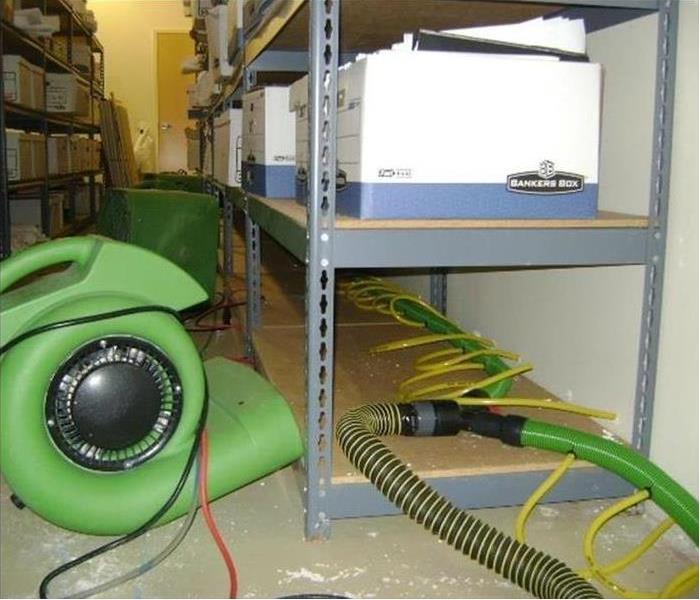How To Dry Out a Commercial Building
9/24/2019 (Permalink)
How To Dry Out a Commercial Building
If you own commercial property in Topstone, CT, a pipe burst probably isn't part of your business plan. When you experience flooding, follow these four damage tips to minimize loss.
1. Enlist the Help of Professionals
Unless the water damage is very minor, the smartest and safest way to dry out your building is to call a water damage restoration company. It will have the tools and expertise necessary to dry out the premises quickly and thoroughly. If technicians encounter mold, black water, or any other unforeseen problems, such as weakened building materials, they can handle those hazards safely too. What's more, a professional restoration company is unlikely to create more damage as it resolves the existing problems.
2. Remove Wet Materials
If the amount of water in your commercial space is minimal, follow these next three damage tips to try remedying the situation on your own. Start by removing wet materials, including carpets and furniture. They can hold moisture and kickstart mold. Wet insulation, for example, will stay wet for an extremely long time, and that trapped moisture can cause significant damage to building materials such as wood and metal.
3. Clean Wooden Surfaces
Water can cause warping, rot and other damage to wooden features such as stairs and trim. Perform a quick clean of exposed wooden surfaces using a disinfecting agent and a microfiber cloth.
If you have wooden flooring, mop up excess water and rinse away any mud and debris. Initial warping may straighten out with time, as it can take months for floorboards to fully dry.
4. Keep the Air Moving
Set up a combination of fans and dehumidifiers to begin drying out the space. Resist the temptation to simply crank up the air conditioning or heat, as drying out the space too fast can cause even more harm. Keep the air moving and stay patient.
Following these cleaning tips and damage tips can help expedite the drying-out process at your commercial property. For the safest and most thorough cleanup, however, restoration is generally best left to the professionals.






 24/7 Emergency Service
24/7 Emergency Service
